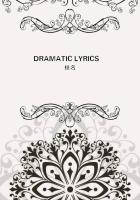Southey thinks a fearful evil.But is there no mitigating circumstance? Each of the ten neighbours of our fundholder has fifty pounds a year more than formerly.Each of them will, as it seems to our feeble understandings, employ more industry and feed more mouths than formerly.The sum is exactly the same.It is in different hands.But on what grounds does Mr.Southey call upon us to believe that it is in the hands of men who will spend it less liberally or less judiciously? He seems to think that nobody but a fundholder can employ the poor; that, if a tax is remitted, those who formerly used to pay it proceed immediately to dig holes in the earth, and to bury the sum which the Government had been accustomed to take; that no money can set industry in motion till such money has been taken by the tax-gatherer out of one man's pocket and put into another man's pocket.We really wish that Mr.Southey would try to prove this principle, which is indeed the foundation of his whole theory of finance: for we think it right to hint to him that our hard-hearted and unimaginative generation will expect some more satisfactory reason than the only one with which he has yet favoured it, namely, a similitude touching evaporation and dew.
Both the theory and the illustration, indeed, are old friends of ours.In every season of distress which we can remember, Mr.
Southey has been proclaiming that it is not from economy, but from increased taxation, that the country must expect relief; and he still, we find, places the undoubting faith of a political Diafoirus, in his"Resaignare, repurgare, et reclysterizare.""A people," he tells us, "may be too rich, but a government cannot be so.""A state," says he, "cannot have more wealth at its command than may be employed for the general good, a liberal expenditure in national works being one of the surest means of promoting national prosperity; and the benefit being still more obvious, of an expenditure directed to the purposes of national improvement.
But a people may be too rich."
We fully admit that a state cannot have at its command more wealth than may be employed for the general good.But neither can individuals, or bodies of individuals, have at their command more wealth than may be employed for the general good.If there be no limit to the sum which may be usefully laid out in public works and national improvement, then wealth, whether in the hands of private men or of the Government, may always, if the possessors choose to spend it usefully, be usefully spent.The only ground, therefore, on which Mr.Southey can possibly maintain that a government cannot be too rich, but that a people may be too rich, must be this, that governments are more likely to spend their money on good objects than private individuals.
But what is useful expenditure? "A liberal expenditure in national works," says Mr.Southey, "is one of the surest means for promoting national prosperity." What does he mean by national prosperity? Does he mean the wealth of the State? If so, his reasoning runs thus: The more wealth a state has the better; for the more wealth a state has the more wealth it will have.This is surely something like that fallacy, which is ungallantly termed a lady's reason.If by national prosperity he means the wealth of the people, of how gross a contradiction is Mr.Southey guilty.Apeople, he tells us, may be too rich: a government cannot: for a government can employ its riches in ****** the people richer.The wealth of the people is to be taken from them, because they have too much, and laid out in works, which will yield them more.
We are really at a loss to determine whether Mr.Southey's reason for recommending large taxation is that it will make the people rich, or that it will make them poor.But we are sure that, if his object is to make them rich, he takes the wrong course.There are two or three principles respecting public works, which, as an experience of vast extent proves, may be trusted in almost every case.
It scarcely ever happens that any private man or body of men will invest property in a canal, a tunnel, or a bridge, but from an expectation that the outlay will be profitable to them.No work of this sort can be profitable to private speculators, unless the public be willing to pay for the use of it.The public will not pay of their own accord for what yields no profit or convenience to them.There is thus a direct and obvious connection between the motive which induces individuals to undertake such a work, and the utility of the work.
Can we find any such connection in the case of a public work executed by a government? If it is useful, are the individuals who rule the country richer? If it is useless, are they poorer? Apublic man may be solicitous for his credit.But is not he likely to gain more credit by an useless display of ostentatious architecture in a great town than by the best road or the best canal in some remote province? The fame of public works is a much less certain test of their utility than the amount of toll collected at them.In a corrupt age, there will be direct embezzlement.In the purest age, there will be abundance of jobbing.Never were the statesmen of any country more sensitive to public opinion, and more spotless in pecuniary transactions, than those who have of late governed England.Yet we have only to look at the buildings recently erected in London for a proof of our rule.In a bad age, the fate of the public is to be robbed outright.In a good age, it is merely to have the dearest and the worst of everything.
Buildings for State purposes the State must erect.And here we think that, in general, the State ought to stop.We firmly believe that five hundred thousand pounds subscribed by individuals for rail-roads or canals would produce more advantage to the public than five millions voted by Parliament for the same purpose.There are certain old saws about the master's eye and about everybody's business, in which we place very great faith.















